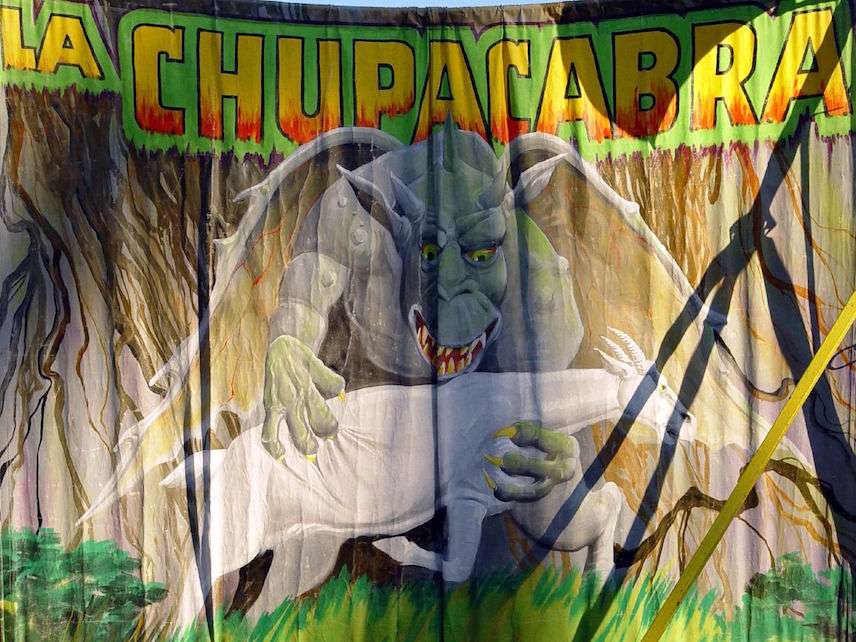The Federal Government Ruined Puerto Rico
Puerto Rican statehood is an opportunity to redefine American federalism.

Puerto Rico voted to become a U.S. state this week. Needless to say, we should all be deeply concerned about the island's engorged debt, destructive fits of socialism, and terrifying chupacabras.
But Puerto Rican statehood also represents a unique opportunity to reform American federalism. Accepting a new state with markedly different problems and programs means acknowledging that states aren't interchangeable. We should welcome Puerto Rico and, while we're redefining what constitutes our union, rexamine the power dynamic between Washington and the states.
Puerto Rico is a test case in one-size-fits-all solutions and federal intervention ruining an economy. The island has significantly lower income and productivity than the continental United States, but it is still subjected to a national minimum wage crafted for the mainland. That disparity squeezes entry-level jobs out of the market and ratchets up unemployment rates. The slumping job market is worsened by the fact that federal programs like food stamps, Social Security benefits, education grants, and disability payments aren't pegged to local cost of living. In a region poorer than America's poorest state, it's not surprising that people would opt for generous federal handouts over scrambling for jobs the minimum wage hasn't yet outlawed. Puerto Rico would benefit from an opt-out clause on the mininum wage—an option that should be available to all states.
Because Puerto Rico is an unincorporated territory and not a state, it's more vulnerable to federal intervention. The Jones-Shafroth Act exempted Puerto Rican bonds from local, state, and federal taxes. The feds might as well have sprinkled cocaine and cronuts over the bonds. Investors bought dumpsters full of Puerto Rico's sovereign debt, leading the island to further lurch into exorbitant deficit spending.
Federal trade laws also hobble Puerto Rican prosperity. The Jones Act prohibits foreign ships from moving goods between American ports. That means a foreign flagged vessel can't stop at Puerto Rico on its way to or from the mainland, but must instead offload and reload goods at another American port so a more expensive U.S. ship can transport them. Peter Schiff explains: "Even though median incomes in Puerto Rico are just over half that of the poorest U.S. state, thanks to the Jones Act, the cost of living is actually higher than the average state." The Jones Act would be a great issue to bring up when Congress deliberates on Puerto Rican accession. Abolishing it would benefit everyone, most of all Puerto Rico.
All of this may be incidental to the issue most likely to trouble Americans: How the hell are we going to shoehorn another star onto our flag? If we admitted Puerto Rico it would completely screw up the Stars & Stripes. Check out what the new mutant flag would look like:
As you can see, this hideous abomination is utterly unrecognizable. Fortunately, I've devised a way we can admit Puerto Rico without having to go out and buy a 51-star devil flag.
At this point in our history I think we can all agree that Florida is a freak state. When it's not too busy irresponsibly losing its emus, it's violating the Geneva convention with silly driving laws. I'm not opposed to taking away their electoral votes and giving it to someone more responsible, such as Canada, or possibly my improv team. They certainly don't deserve to have a star. So we could take Florida's star away and give it to Puerto Rico. I spent all night running that scenario through complicated graphic algorithms and came up with this model:
This week's vote was a non-binding resolution, but the island will hold another vote in October. If Puerto Rico petitions Congress to join the Union, limited government proponents could rightly point out that federal programs operating in Rhode Island have disastrous effects on the island of Puerto Rico. Surviving Goldwater acolytes advocate a federal government that concerns itself primarily with issues the states cannot handle in aggregate, such as international diplomacy, the military, whatever "covfefe" is, and cranking out commemorative quarters. Whereas liberals tend to feel that state governments are run by corrupt yokels, so we should increasingly defer to the enlightened technocrats of Washington instead.
It's too much to ask that liberals infer from Puerto Rico that socialist policies held back growth and prosperity. But it's feasible that in exchange for redefining the collection of states that comprise the Union, fiscal conservatives could advocate for more variance between its participants and scale back federal overreach.
Fifty-one different states might come up with 51 different solutions for killing chupacabras. The federal government would probably just wind up subsidizing them.


Show Comments (92)